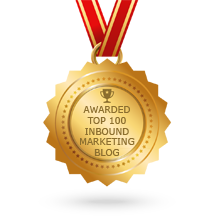
These days, it’s become increasingly hard for small businesses to get found online in an organic way. Competition to rank in Google’s SERPs (search engine results pages) is fierce, which isn’t helped by the fact Google is constantly updating its algorithms, making it hard for small businesses to actually know what to do in order to succeed at SEO. Recently however, SEO has shifted to a topic cluster model. So what exactly does this mean? In this article, I am going to cover what you need to know about the topic cluster model, the game-changing tool that will help you increase your SEO performance and how it is helping small businesses win big with SEO.
Topic Clusters: The Future of SEO
OK so the future of SEO is topic clusters, but what on earth are topic clusters and how do you start working using them? Basically, topic clusters refer to a ‘pillar’ page on your website that acts as the primary hub of content for a key topic. You then link your related content pages back to the pillar. These connected links tell search engines that your pillar page and your website is an authority on that particular topic. As you produce more content on a key topic and continue to link it to your pillar page, search engines begin to rank that page (and your website as a whole) higher as you are providing relevant, valuable and consistent content about that topic. Sounds easy enough, right? And that’s because it is.
It is important, however, to ensure your pillar pages broadly cover the topic you’re concentrating on so that it actually connects to all the other cluster content that is linked to it. Cluster content (for example, blogs), need to speak in depth about one area that you mention on your pillar page. So, for example: if you have a pillar page that’s all about ‘content marketing’, a cluster content page (e.g. blog) might go into depth about ‘how small businesses can benefit from content marketing’.
It is vital that you consider the topics and ideas you want your business to rank for in search engines when building your pillar pages and cluster content. Of course, keywords are important too, but the topics and ideas are merely the umbrella under which your keywords sit.
Why Topic Clusters?
Why exactly are topic clusters the future of SEO? Basically, it all comes down to the changing behaviours of online consumers. In the past, people would type fragmented keyword questions into search engines to find the answers to their questions. These days, most people are happy to pose complex and structured questions to a search engine, and subsequently expect an accurate response without having to trawl through the results pages to find what they’re looking for. Algorithms have now evolved to a point where they can easily and quickly understand the topical context behind the searcher’s intent. They can then link it back to similar searches they’ve had in the past, and provide searchers with the web pages that are most relevant to the query.
The first major SEO change that was arguably the start of the topic cluster model happened in Google’s Hummingbird update in 2013. This is when Google’s search algorithm first began analysing exact phrases rather than just keywords. The next big shift towards the topic cluster model happened with Google's RankBrain update in 2015. RankBrain was designed to understand the content of people’s search queries. It began to associate past searches with similar themes, while simultaneously pulling multiple keywords and phrases relevant to that search query to find the most accurate results.
How HubSpot’s SEO Tool is Helping Small Business Win Big
HubSpot’s innovative Content Strategy Tool is helping small businesses win big with SEO thanks to its intuitive features and simple user-friendly design. The tool provides users with topic cluster suggestions based on your current website content and domain, and the ideas and topics you want to rank for. HubSpot’s tool sorts and organises ideas by grouping content into topic clusters, which are made up of a core topic (or pillar page) and a number of sub-topics. Perhaps the biggest benefit of HubSpot’s tool is that it suggests to you core topics based on your website content to help you get started, but you can also create your own core topic. HubSpot’s Content Strategy Tool allows you to build upon your topic clusters by linking sub-topics to it, which are meant to be more descriptive and focused on queries that relate to your core topic.
Now, here is how the tool is really helping small businesses win with SEO. Core topics and sub-topics that are suggested in the Content Strategy Tool are ‘validated’ to determine whether or not they are actually worth writing about. This is extremely helpful to time-poor small businesses who do not have enough hours in the day to play around with topic ideas and find out what works and what doesn’t – HubSpot’s tool will do it for you from the start. These validated topics can then be expanded to view metrics such as domain authority, relevancy, monthly search volume and how similar they are to your core topics. These different metrics are helping small businesses to see how likely it is someone searching for a specific topic will find what they are looking for from your current content.
Finally, once you’ve created your topic clusters, you are then able to review their performances in a simple, easy-to-use dashboard. You are able to view the sessions, contacts and customers influenced by your content, which allows you to quickly and easily update your SEO content strategy if you need to. For small businesses who have a limited marketing budget or are just starting out in marketing, this kind of information and help is invaluable, especially when trying to navigate the complex waters of SEO for the first time.

